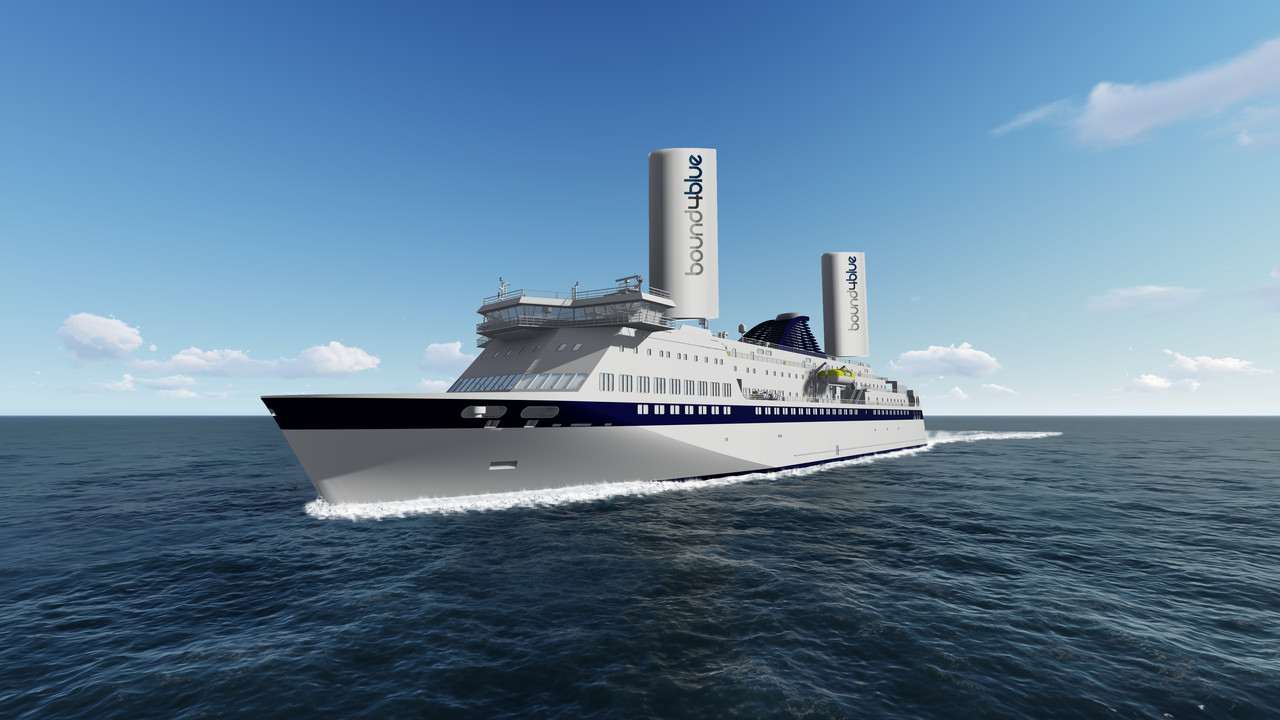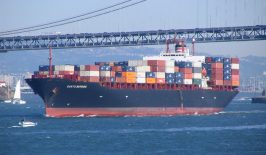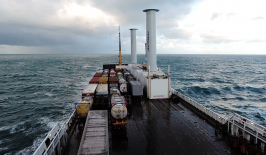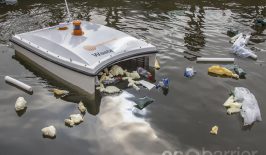The impact of global shipping is huge, and we’ve previously written numerous times about both the impact and the upcoming much-needed crackdown on emissions in 2025.
The numbers are startling. According to the United Nations’ International Maritime Organization, the global shipping industry generates more than one billion tons of carbon a year, equating to around two to three per cent of global totals. In addition to carbon, vessels use cheap and dirty ‘bunker’ fuel for their engine propulsion, emitting significant pollutants including NOx and SOx. And, none of these emissions are subject to international treaties on climate change – such as the Paris Agreements – due to the international nature of the industry.
Solutions to this problem would be welcomed by the industry. Currently, up to around 80 per cent of the cost of shipping can be in the fuel usage.
We’ve previously written about new ideas to help improve efficiency, including using high-tech rotary sails to help propel ships at sea, reducing fuel requirements, and being trialled by shipping super heavyweight Maersk. Former Airbus engineers have also been working on a new kite for ships, with a sail more than 1,000 square metres in size aiming to help tow ships.
Another idea is currently being spearheaded by Spanish company bound4blue, whose idea sees them taking wing-shaped structures similar to aircraft wings and attaching them vertically to the top of ships. Bound4blue, founded by three aeronautical engineers, is calling these smart structures “wingsails” and they can be retrofitted to vessels of all sizes to provide effective thrust from ocean winds, reducing engine power requirements. Bound4blue claim the tech is currently “delivering fuel consumption and pollutant emissions reductions of up to 40%.”
Rigid wingsails have already proven themselves, with racing yachts proving out aerodynamic advantages over recent decades, while motorsports use similar concepts to provide downforce. What is new is that wingsails that can be adapted without significant costs, and still allow for rapid loading and unloading of cargo without interference – and without reducing overall cargo volume.
Given the claimed 40 percent improvements, this technology could be a complete gamechanger, so the significant promise that it provides the industry cannot be ignored. Further difficulties come in adapting the technology to maritime conditions, though. Rough waves, seawater, and winds are not known for being kind. However, the wingsails have been adapted to fold down to tuck away in rough conditions, with automated operation, and they rotate to face prevailing winds to generate thrust.
So what’s the catch? The company claims a payback period of five years, so it’s not costs per se. It may just be timing. The concept is still in the early development stages and it may take a while for it to achieve a real impact on the industry. The company is now working on a real-scale implementation on three vessels of varying sizes, ramping up in size each time, starting with a 20m wingsail on a fishing vessel, a second wingsail on a merchant vessel and a third installation on a bulk carrier. In a recent interview, COO and co-founder Cristina Aleixendri Muñoz, said that by 2025, the company expects to “execute more than 100 projects per year.”
Clean technologies that also happen to save people money in the long term can lead to dramatic and rapid change. Let’s hope that bound4blue’s innovation – and others like it – will soon be used by many shipowners not only wanting to reduce their fuel-related costs, but their pollutant emissions too.









